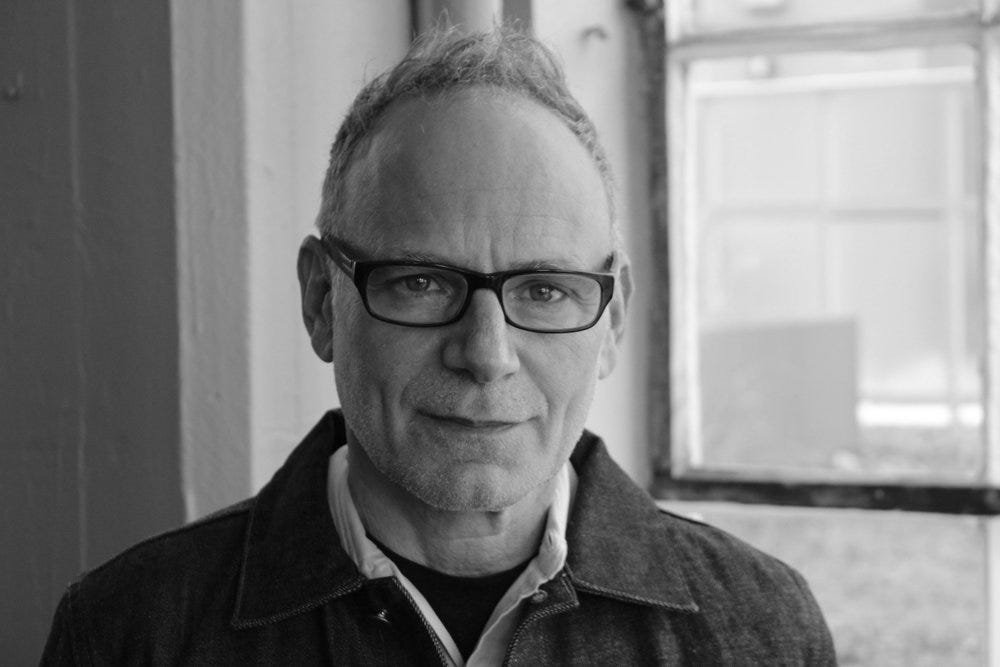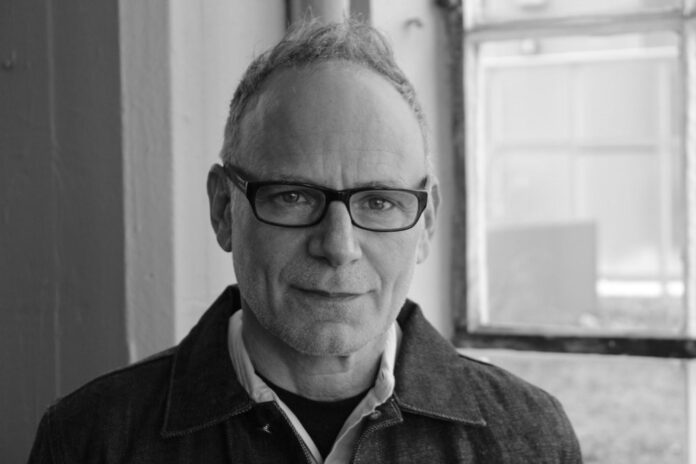“There Are A Herd Of Elephants Behind You Waiting To Get In The Door” 5 Insider Tips With Director Jordan Melamed

“There are a herd of elephants behind you waiting to get in the door. I first understood the film business when in the 90’s I went into a large closet in a production office to have privacy on a call. I thought the walls were white but as my eyes adjusted to the light I could see walls were lined with scripts floor to ceiling, films that would never be made!”
I had the pleasure of interviewing Director Jordan Melamed. Jordan spent twelve years in the Chicago trading pits before attending the American Film Institute in Los Angeles where his thesis film, A Corner in Gold, won the Student Emmy for Drama from the Academy of Television Arts and Sciences and played at Kodak’s Emerging Filmmaker’s Showcase at the Cannes Film Festival. His first feature, Manic, starred Joseph Gordon-Levitt, Zooey Deschanel, and Don Cheadle, and told the story of a violent adolescent placed in a juvenile psychiatric facility against his will. Manic premiered at the Sundance Film Festival, played at Toronto and film festivals worldwide, and was released theatrically by IFC Films. Showtime bought the rights to create a television series based on the film and Melamed co-wrote the pilot with Davis Entertainment producing. Melamed wrote and produced Twelve based on the best-selling novel by Nick McDonell. Directed by Joel Schumacher, with Chace Crawford, Emma Roberts, 50 Cent, and Ellen Barkin, Twelve premiered as the closing night film at the Sundance Film Festival in 2010 and was released worldwide by Hanover. Jordan is currently developing Fountain of Youth, a hybrid documentary/ fiction project about beauty and aging set in South Miami Beach. Jordan’s latest film, FUTURES PAST will have a Los Angeles Premiere screening event at the 13th annual Los Angeles Jewish Film Festival.
What is your “backstory”?
— Growing up the son of a legendary figure in Chicago, I had it easy. I started trading when I was 19 and money, relationships, followed. I had confidence, but it was the false confidence that comes from money and easy success. But when I went out to LA to attend film school at AFI, I began, a new life, one that would test me in ways I never imagined. My first feature MANIC premiered at Sundance and agent, manager and job offers followed. But when it all came crashing down, everything I thought about life came into question. I got divorced, lost my agent and my career. I was fortunate to get the opportunity to make this film because it allowed me to find myself as a person and as filmmaker.

Can you share the funniest or most interesting story that occurred to you in the course of your acting/directing/performing career?
Don Cheadle starred in my first feature MANIC. He loved the script and did the film for practically no pay. One day we were shooting a “group therapy” scene, with Don, as the therapist and a bunch of teen actors playing the adolescents in the psych unit. It was 6 page scene with heavy dialogue and we were under pressure to get it done in one day. But the kids kept forgetting their lines. So Don got pissed off and played the entire scene for them, seven characters, six pages, word for word by himself. No one forgot their lines for the rest of the shoot!
What are some of the most interesting or exciting projects you are working on now?
Writing a Vampire script — an allegory on Harvey Weinstein and sexual harassment in Hollywood.
Developing a time travel love story, a hybrid documentary/fiction project about a contemporary search for the Fountain of Youth
Figuring out ways to get my 15 year old to put down her phone.
Who are some of the most interesting people you have interacted with? What was that like? Do you have any stories?
One of my favorite people was the late Mali Finn who cast my film MANIC. She did mostly big Hollywood pictures but took a chance on Manic (for no pay) because she loved the script. She was a fearless person who brought such passion to her job and treated the process of casting Manic the same as a 100 million dollar blockbuster. She get up in the face of actors playing a scene and whisper in one ear ‘you hate him” and in the other “you love him” to teach them to bring out the complexity of their characters. I learned more from her in a two month casting process then in film school!
Which people in history inspire you the most? Why?
Freud — for opening the world to the complexity of the mind, not so much for his specific ideas — but for the influence he had in creating the idea that mental illness is curable. Amazing that to this day, it is still not treated equally to physical illness by insurance companies.
My grandfather (I called him my Zedi) who ran from the Nazi’s and survived against all odds. He also influenced me to leave behind the shallow trading world. When I was a trader, I re-designed a Brownstone, spent a fortune and was excited to show it to him. I gave him a tour and asked him what he thought. He said, “You shouldn’t live here. You should turn it into a museum.” That cut.
Neil Young — because his music has saved me at my darkest moments and because he’s been reinvented himself for a lifetime.
What do you do to “sharpen your craft”? Can you share any stories?
I wake up every morning and write — scripts, stories, poems — no matter how good or bad…
How have you used your success to bring goodness to the world?
My film MANIC is shown at schools and mental health facilities to teach because it’s regarded as one of the most honest depictions of psych hospitals and kids facing mental illness.
With this documentary, my hope is that by showing my complicated relationship with my father, it will help others face these familial issues before it’s too late.

What are your “5 things I wish someone told me when I first started” and why. Please share a story or example for each.
-Take the projects offered to you, your next film does not have to be your masterpiece. The story is in my film but essentially, I tried to live up to my father by aiming for the sky.
-There are a herd of elephants behind you waiting to get in the door. I first understood the film business when in the 90’s I went into a large closet in a production office to have privacy on a call. I thought the walls were white but as my eyes adjusted to the light I could see walls were lined with scripts floor to ceiling, films that would never be made!
– Find a partner (producer or co-writer) it’s much easier to navigate the ups and downs of the business as a team
-You can only make good films when coming from the most honest place (i.e., when you think you’ve gone deep — go deeper!) My favorite film teacher used to say — What’s it about? And then you’d answer and he’d say “No what’s it really about? (and so on..) I couldn’t crack this documentary until I understood that the zero sum game of the trading pit “for every winner there is a loser” was the same as the relationship between me and my father — the only was to resolve our conflict was through the pit.
-Though the competition is fierce, try to control your own material and write your own scripts. Though the competition is fierce, actors will respond to a great script.
-In making a documentary budget post-production at 3X what you initially think. Stories in real life take much longer to develop and the editing process to find the film can be very long.
Some of the biggest names in Business, VC funding, Sports, and Entertainment read this column. Is there a person in the world, or in the US whom you would love to have a private breakfast or lunch with, and why? He or she might see this. 🙂
Neil Young.


